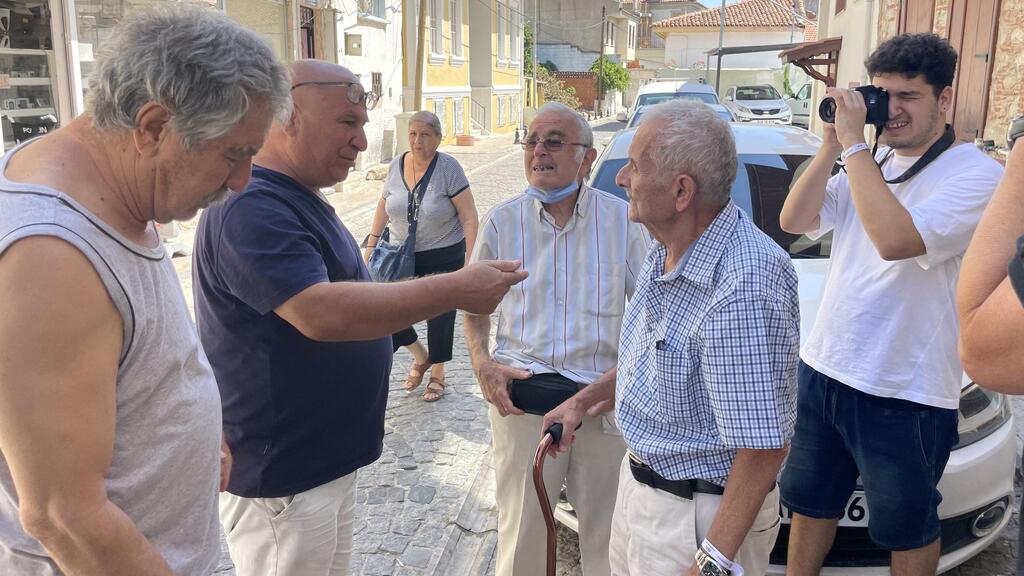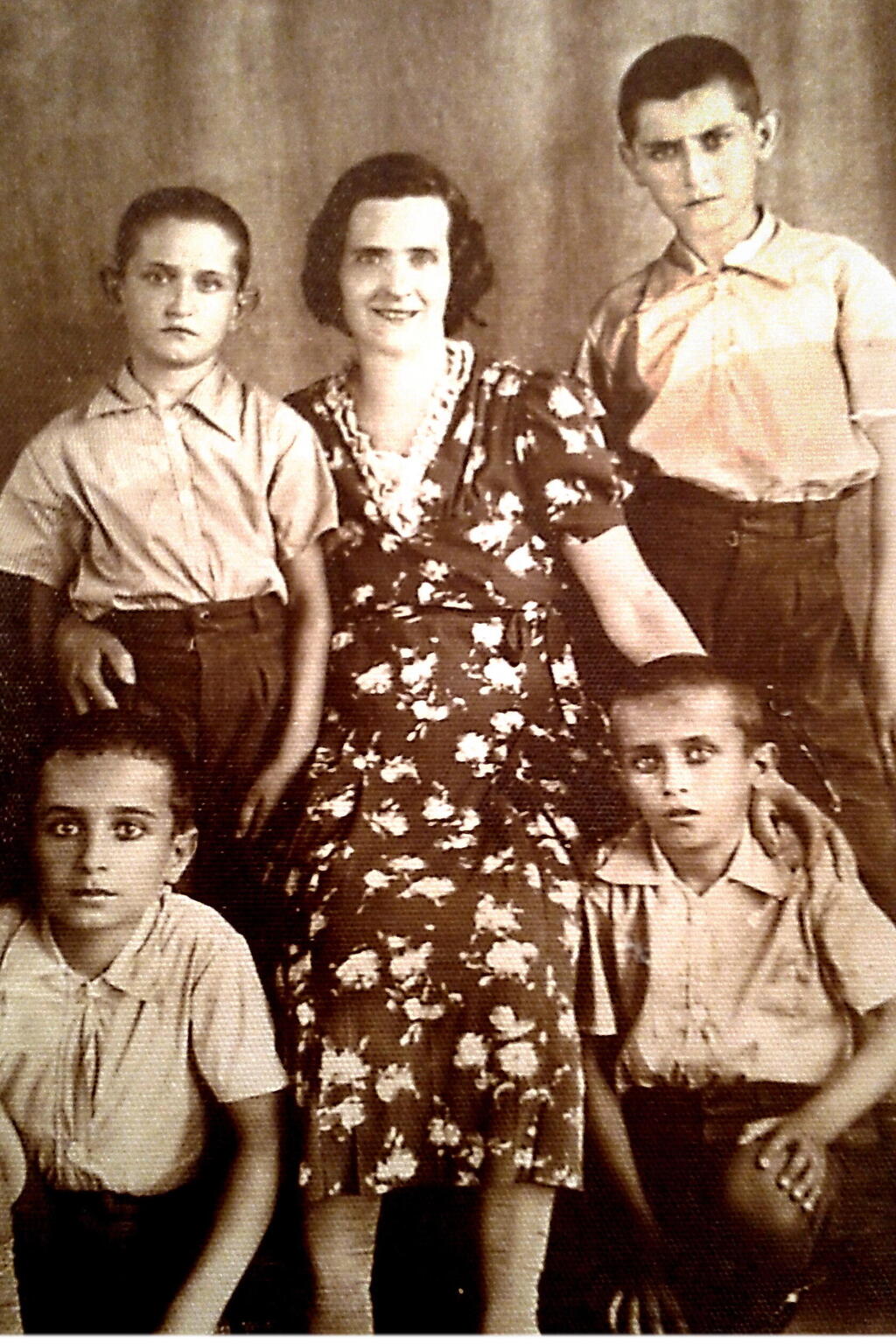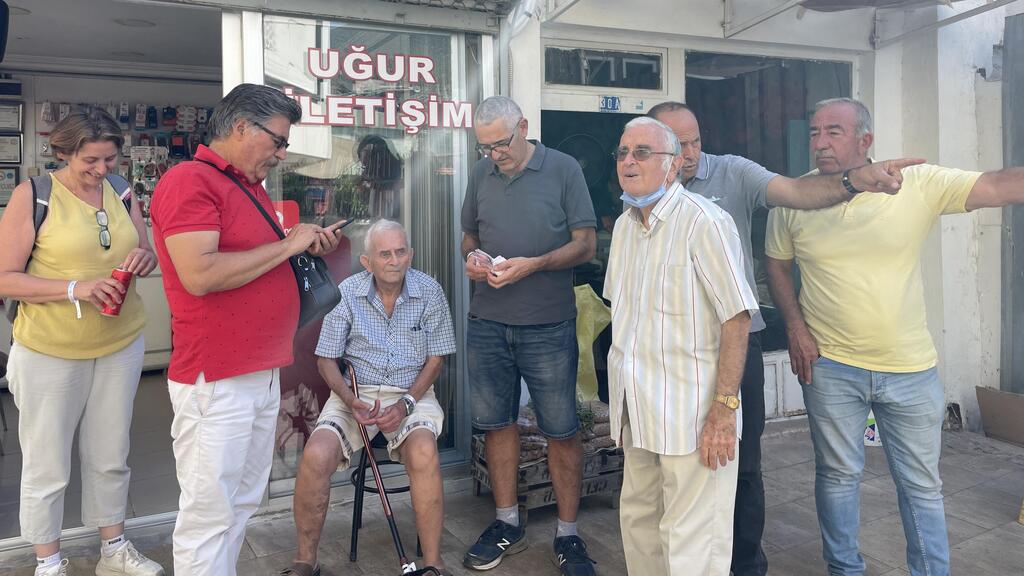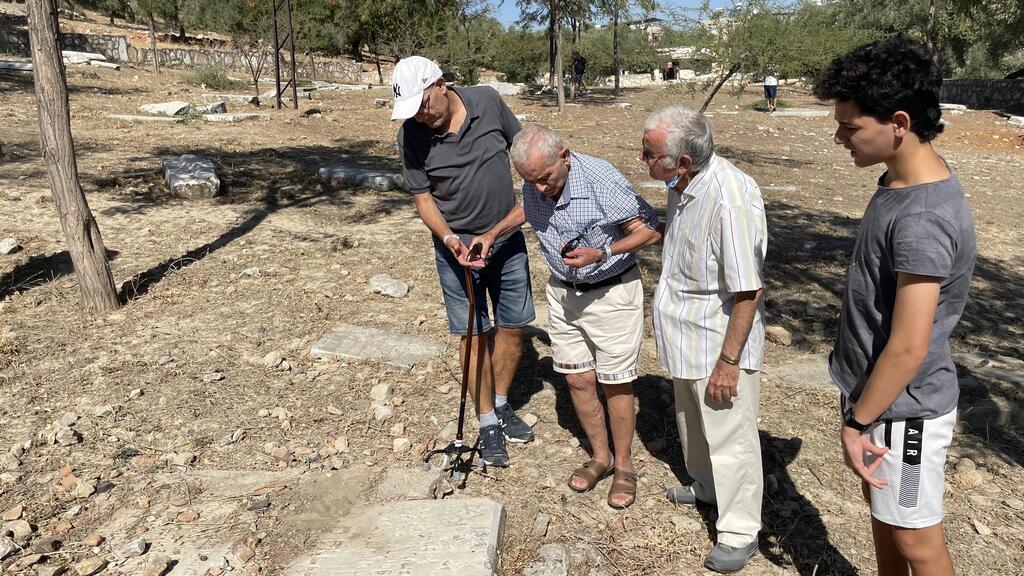Only a few Israelis are aware of the fact that the ancient city of Milas in southwestern Turkey once had a thriving Jewish community. So much so, that their legacy is ingrained in the city to this day.
We arrived in Milas for a roots travel trip with my father-in-law, who was born there. After 75 years, he finally got the chance to see the house where he was born and raised.
4 View gallery


Local residents arrive to meet Herzl and Naim and help them find their childhood house
(Photo: Zohar Turiel)
The last Jew of Millas left the city about 25 years ago. Herzl Nutrika, 77 today, took the mezuzah from his childhood home and carried it to his new house in Izmir - that was how the Jewish population that had lived in the city for some 200 years disappeared.
As the State of Israel was established, the first to leave were Nutrika's cousins, four brothers of the Turiel family - Abraham, Jacob, Haim, and Naim the youngest.
Naim was only 13 back then. Alone, and not speaking any Hebrew, he made Aliyah, joined the military, married, fought in the wars of Israel. He had children and grandchildren. This year, at 90 years old, he asked his two children to take him back to Milas. His cousin Herzl joined him on that trip, and together they once again walked the narrow streets of their hometown.
As soon as we got off the minibus, a local man rushed to enquire who we were. When he realized the purpose of our visit, he said he remembers the Jews who lived here when he was a kid.
Without being asked, he continued to accompany us in our search for the house where Naim was born and raised. More people from the houses and local shop joined in. Everyone were welcoming and eager to help. They were also really excited to see Naim, who grew up in their neighborhood and was part of the Jewish community they heard so much about.
At its peak, the Jewish community in Milas was about 20% of the city's population, but it is not mentioned frequently in historic writing.
If it weren't for Zehava Chen-Turiel, all knowledge and memories would have disappeared over time. Chen-Turiel urged her father, Jacob Turiel, to write down his memories of growing up on the city. She later began to study the history of the Jewish community in the city, eventually publishing a book called "Women of Turiel."
"The Jewish settlement in Milas began in 1820", Jacob Turiel notes in his writing. "Then, a number of Jewish families emigrated from the island of Rhodes. They were of Spanish descent, including the Franco family, Ameto and Turiel, which originally came from the town of Teruel in northeast Spain."
At its peak, the community in the city had two synagogues, mutual aid societies, and financial contributions. The Jews worked mainly as merchants and shopkeepers who sold fabrics, sewing materials, and gold.
The community in Millas grew considerably after World War I, and again after World War II when it became a haven for Jewish refugees fleeing the Italian and Greek authorities. The members of the community received them well, and they got along well with most of the local neighbors.
The community also appears to have had a cordial relationship with their Muslim Turkish neighbors. "We lived with them in peace and love," Naim recalls. "We used to play together as kids and we didn't feel any different."
But, after the establishment of the Turkish Republic in 1923, Turkish nationalism flourished, and with it, the hatred of foreigners. In 1934, there was a trial against Jews accused of insulting Turkey in the city of Edirne, and the trial soon became a blood plot against all Jews.
4 View gallery


Esteria Turiel and the children Abraham Jacob Haim and Naim
(Photo: Courtesy of Eli Turiel)
"Rumors of what happened at Edirne reached Milas," Naim recalls. "And the Turks have already begun to mark the houses they will take from the Jews who will be exiled."
In prestige state schools, teachers who had acquired their education in Germany ignored violent incidents against Jewish students (and some claim they even encouraged them. Minorities were forbidden to speak in non-Turkish languages. The mother of the four brothers, Esteria Touriel, was imprisoned for being caught speaking Judaeo-Spanish - a Romance language derived from Old Spanish.
World War II was difficult for the Jews of Turkey. The men were forced to enlist to the army, and the father of the family, Asher Turiel, was sent to a labor camp for several years, where he worked paving roads.
The government imposed a "property tax" on the Jews, which led many families to bankruptcy. The large synagogue, meanwhile, was nationalized and converted into a grain warehouse.
After the war, a fast-track process of deportation and emigration began. First, the wealthy families left for Izmir, Istanbul, and the United States. Others, especially the young people who adopted the Zionist idea, immigrated to Israel.
Herzl estimates that by the end of the 1950s, from 200 families, only some 50 remained. In the following decade, another 40 families had fled. At that point, the two synagogues in the city were already completely destroyed.
Before visiting the Jewish Quarter, we stopped at the old Jewish cemetery in the city. It was very neglected and dirty, quite a few marble stones were stolen and replaced with a simple concrete casting. Herzl, looking very disappointed, said he may ask the mayor to take care of the cemetery. Despite the bad condition of the cemetery, we were able to find the graves of the family.
We continued to the Jewish Quarter, and the excitement increased as we reached the entrance to the house where Naim was born and raised. It was locked, but the locals tracked the landlord, and they arrived to open the door for us. Then, after 75 years, Naim walked once again on the floor of the house where he grew up.



